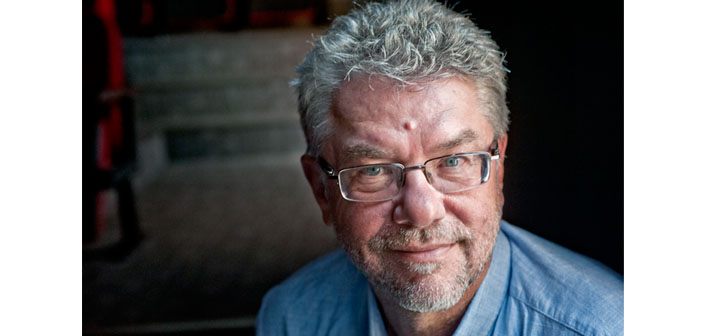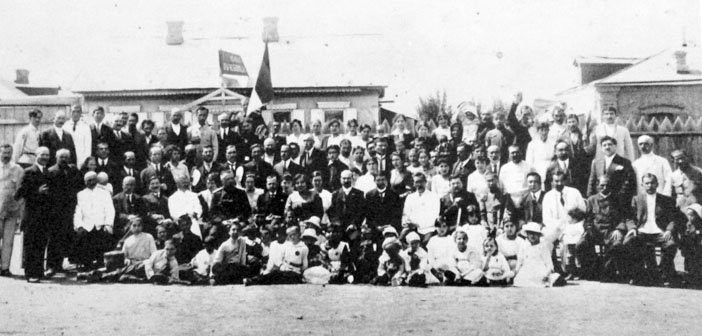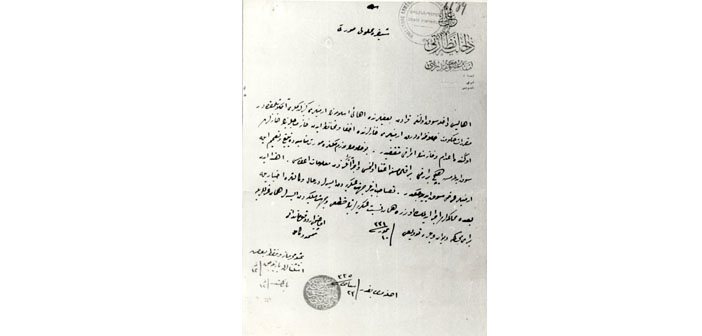According to Jürgen Gottschlich, Taz Newspaper Turkey correspondent, the fact that German parliament recognized the genocide and Germany's complicity means that Turkey is left alone even by its “former ally”.
Working as the Turkey correspondent of German Taz newspaper for 15 years, Jürgen Gottschlich is familiar to Turkish politics and Armenian question. Gottschlich's work “Beihilfe zum Völkermord: Deutschlands Rolle bei der Vernichtung der Armenier” (Helping the Genocide: Germany's Role in the Annihilation of Armenians), which was published in Germany on 100th anniversary of the genocide, is one of the works that initiated the discussions of the genocide in Germany. We talked to Gottschlich about the meaning of the resolution in terms of politics and recognition of the genocide.
The Armenian Genocide was brought to the agenda of German politics through the first resolution that was presented in 2005. Before 2005, was there any discussion on the genocide in Germany?
No, it was of interest only to a few intellectuals. There wasn't even many people who knows that Germany and Ottoman Empire were allies during the World War I. World War II was the main issue on the agenda. Ordinary people hadn't been reflecting on what happened during World War I.
So, what is changed? Why is it discussed now as political issue?
Some intellectuals did a good job of reminding what happened. On the other hand, Armenian society in Germany began to speak up and in this way, more and more people became aware of what happened. And of course, 100th anniversary commemorations in 2015 was influential. German press covered the discussions on this issue more broadly compared to previous years. And the Pope's statement should be noted, because it is very important for conservatives. Erdoğan warned and condemned the Pope and conservative people were resented by this move. However, at the beginning, the government didn't want this issue to be discussed in the parliament. Political parties said, “Why should we remain silent just because Erdoğan doesn't like it?” and the discussion became increasingly intense. The most recent move that affected the discussion dynamic in Germany was President Gauck's statement that he made on April 23; he defined what happened in 1915 as genocide. After that, the government had nothing left to do for preventing this issue from being brought to the parliament. Politicians started to say that “even for Germany, it is time to say what happened in 1915-1916 was genocide.”
Why “even for Germany”?
Because Germany had a hand in the genocide.
The discussion on Green Party's first resolution was postponed. What is the reason of having a voting now?
On last February, Green Party said that they will bring it to the parliament no matter what and exercised influence over the conservatives. However, Merkel postponed the voting because of the migration deal. The government said, “We are middle of the negotiations with Turkey, we should postpone it to June 2” and this offer was accepted.
The migration deal is not fully implemented yet. What does passing of the resolution mean in terms of the relations between Turkey and Germany?
Assessing the statements of many politicians from different parties, we see that they are fed up with Erdoğan and they wanted to pass the resolution. They don't think that Turkey will annul the deal because of this resolution. Then again, they think that even if Turkey annuls it, it would be affected more negatively compared to Germany. My impression is this: all politicians are fed up with Erdoğan and they used this resolution to kick him.
Apart from these political motivations, what does the resolution mean?
First of all, having the term “genocide” in the title is really important. Moreover, it is an important step concerning Germany's role in the genocide, which is getting a more and more popular issue. The main documents in German Ministry of Foreign Affairs are already open to public. However, nobody had read them thoroughly until recently. Now, people are more eager to read what is written. For instance, the Green Party suggested to hold an exhibition in Berlin consisting of these documents on genocide for enabling everybody to see them. This means that this issue will occupy the public agenda more often.
In your opinion, what will Turkey's position be after this resolution?
I think that now, for Turkey, it is harder to deny what happened in 1915. Here is why. French, English and Russian parliaments also passed such resolutions on genocide, but those countries were enemies of Ottoman Empire during World War I. On the other hand, Germany and Ottoman Empire were allies. Germany said, “This was genocide and we had a hand in it” and this means that Turkey will become more isolated from now on. Turkey has to realize that people's point of view concerning the genocide has changed and it is not supported even by its former ally. There is something obvious in the letters of the German Ambassador to Ottoman Empire: there were many high-ranking German soldiers in Ottoman army, there is no doubt that they knew what was happening. In the letters sent to Berlin, there are information on the annihilation of Armenian people. This information is written on those letters and hard to deny. In the long term, this resolution will have important effects on Turkey.





